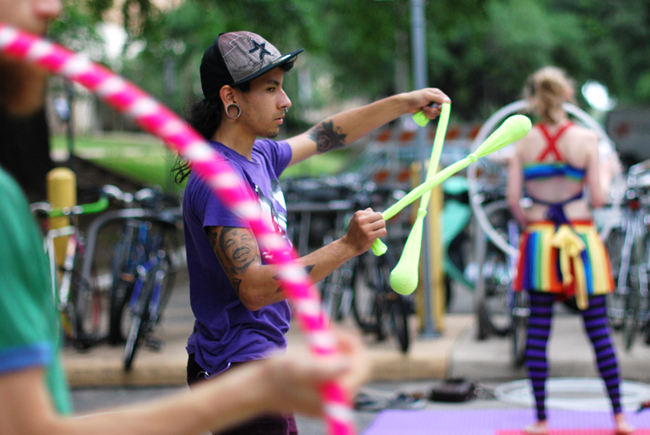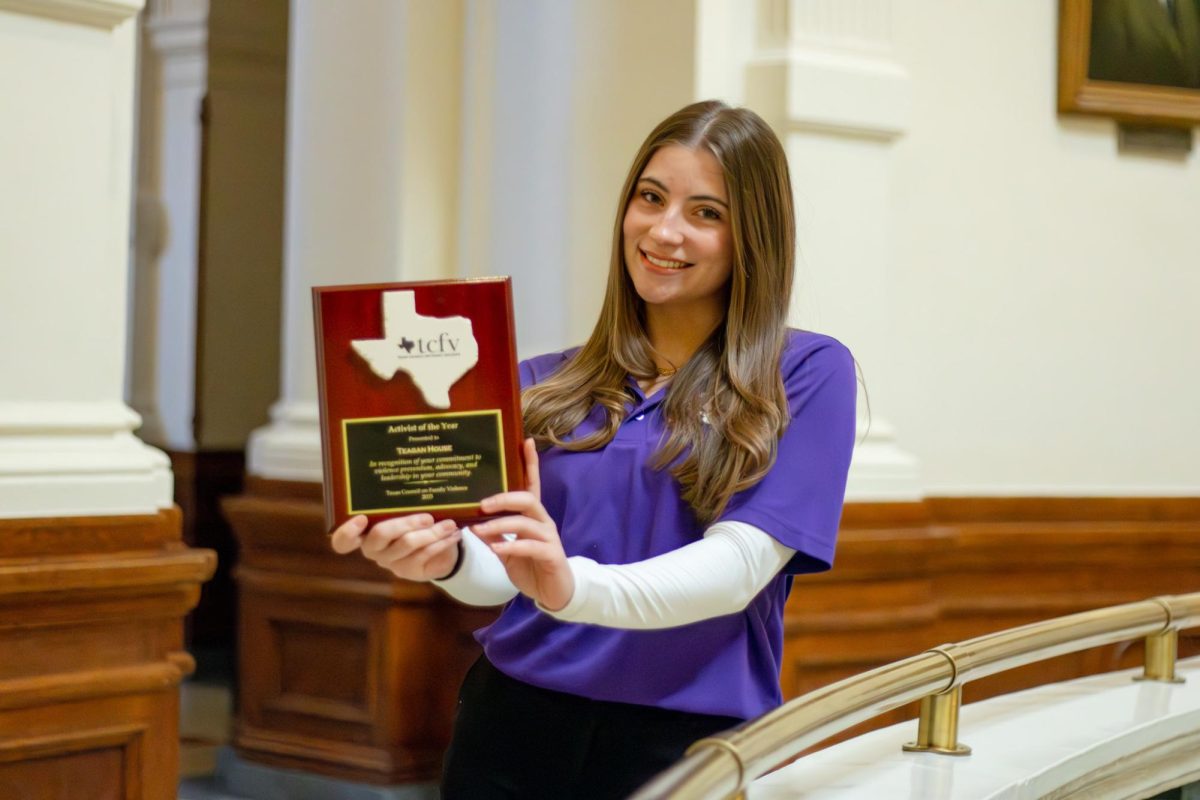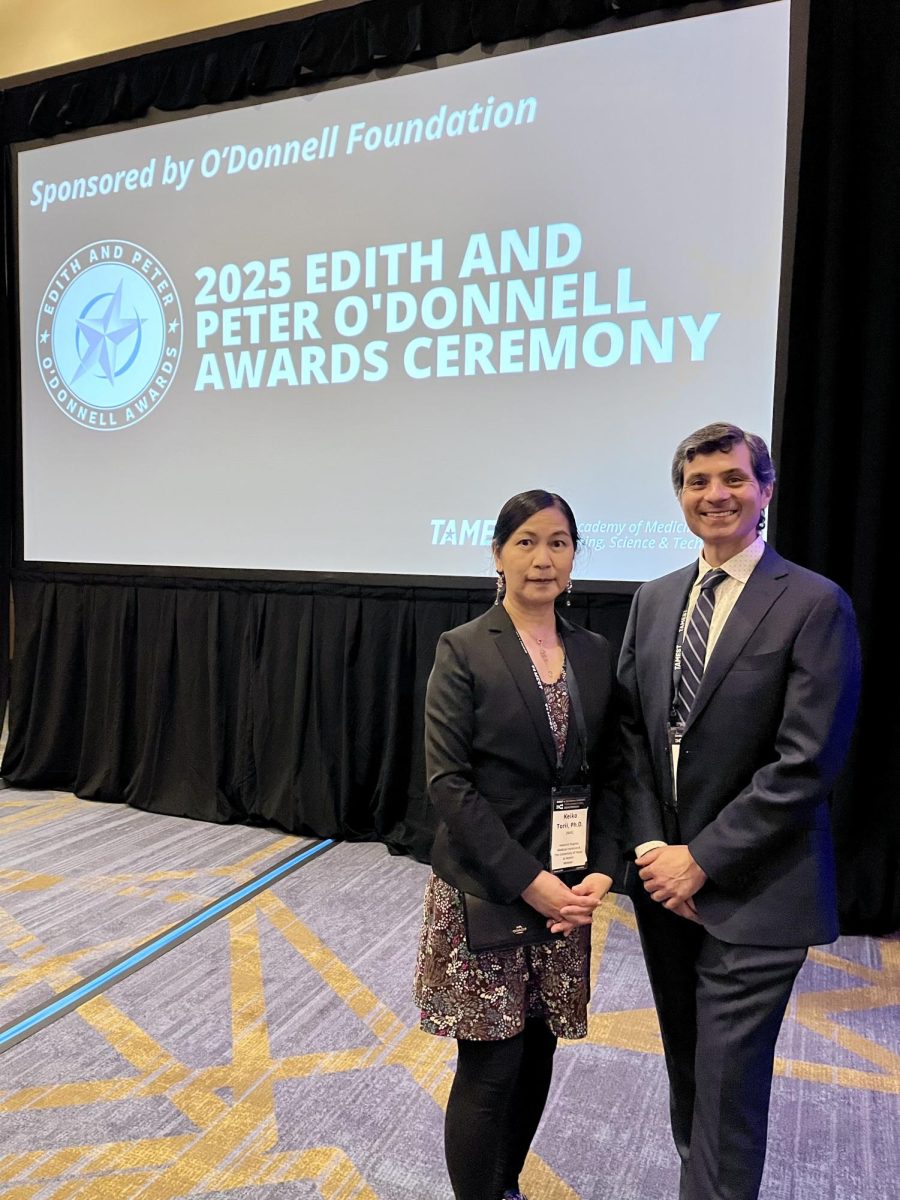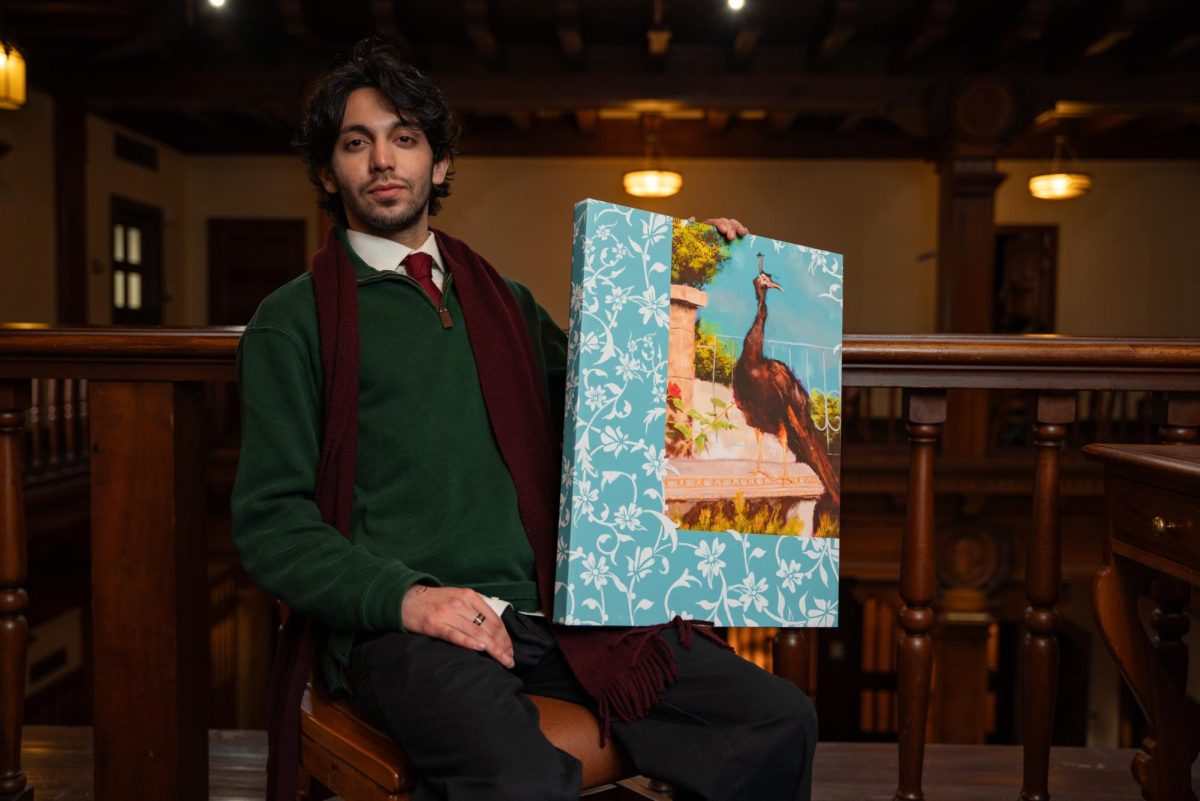Longhorn Circus members used their bodies and hands to create new artistic poses in the air last Wednesday, while others used hula hoops as they danced around the South Mall. Meanwhile, students walking to and from class couldn’t help but observe in fascination.
“It’s hypnotic. You have to do that same motion over and over again,” said Kai Rowe, English senior and co-founder of Longhorn Circus. “The circle is very poetic. It’s multitasking that opens your brain in different ways.”
After noticing what they felt was a lack of alternative forms of exercise on campus, students Rowe, Ashlyn Baum and Annabelle Lewis founded Longhorn Circus this semester, a student organization to promote alternative exercise and self-expression in the UT community.
“This isn’t just some artsy hobby, this isn’t us riding elephants on campus,” Rowe said. “It’s something anyone can do and is much less competitive than all of that staged stuff.”
Longhorn Circus is a group that shares their skills and knowledge of dancing, hula hooping, acrobatics, acrobatic-yoga, poi, drums, hat tricks and magic shows with one another and with onlookers during their performance. They encourage students with or without an athletic background to join.
“You don’t need a gymnastics background to play with us. In fact, most have never seen a gym before joining,” said Baum, geosystems engineering and hydrology junior. “You just need a desire to be active and want to learn new skills.”
When it comes to learning new skills each week, members say it’s all about trial and error and coming to practice with an open mind.
“You can only limit yourself,” Baum said. “As long as you come to practice and want to try skills other students bring to the table, you can do anything.”
To add to their circus-skills repertoire, members share skills by demonstrating what they already know to the group, and then help group members learn both new approaches to old skills and skills they have never seen.
“We tend to partner up since it’s a skill-sharing workshop, but it’s still never like a classroom environment,” Rowe said. “We never all do the same thing, and if worse comes to worse, we can YouTube tricks to get another visual.”
A majority of the basic activities for Longhorn Circus are learned in the first practice. However, acroyoga, a form of yoga where members complete positions and skills with the assistance of a baser holding up a flyer, requires more attention to balance and a sense of physical awareness. As the baser lays on his or her back, a flyer attempts assisted positions in the air supported by the baser.
Once members have the basics, acroyoga can be both therapeutic and acrobatic. This form of gravitational yoga is best suited for athletic minded-individuals who want to gain flexibility.
“I prefer basing people because I’m trying to break traditional gender roles of men being the support,” Rowe said. “It’s just a bunch of bologna that I want to demystify. If people start seeing a small girl basing a guy much heavier, they’ll start thinking they can do it too.”
At practice, the members aren’t restricted by negative energy or that homework assignment they might have later in the day. Instead, members said they believe Longhorn Circus connects them back to the free-spirited nature of their youth.
“I’m very immersed in the UT counter-culture. I want to reach out to other students that feel isolated and make them feel accepted,” Rowe said. “In general, it seems, UT attracts the mainstream student, and it’s nice to bring together art-minded people.”
A majority of members aren’t in the club for the performance aspect of the circus. Instead, they have an interest in being active and meeting new people. They come back because of the weird, challenging and unusual nature of the skills they learn, according to Rowe.
“You can’t be afraid to ask for help,” Rowe said. “We’re always intellectually growing, that’s the premise of attending a university, but we also need to physically grow.”
Devon Sepeda, a physics junior and new member of Longhorn Circus, said he enjoys the organization because it gives him something new and athletic to do with his free time, and he also enjoys the company of the members.
“You have to not think when you come here,” Sepeda said. “It’s nice to just let your body do what it’s suppose to instead of overthinking it.”
Eventually, the organization would like to incorporate some miming and comedic acts to add to the circus-like activities. Although not an official student organization yet, over time, Longhorn Circus would like to become one.
“We’re not secretive in this community. Everyone here wants you to learn everything they know,” Rowe said. “I want more people on campus to get into the mind-set that you can learn anything and have a sense of understanding that we are our own best teachers.”
Printed on Monday, April 16th, 2012 as: Longhorn circus provides mental escape





















